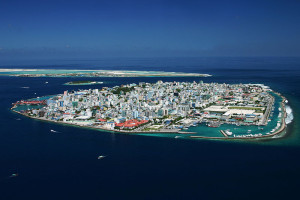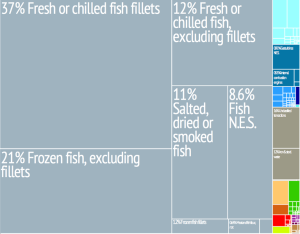Trade Winds in the Indian Ocean: Feasibility talks for Maldives-China FTA begin
The Maldives government has commenced technical discussions with China about a potential free trade agreement (FTA) between the two states. The agreement, proposed by the Maldives, would be Maldives’ first bilateral FTA if established.
 These discussions follow the announcement of the decision to pursue a bilateral FTA with China in late December of last year after a visit by the Maldives cabinet’s economic council to China. The ongoing talks are aimed chiefly at assessing the feasibility of the proposed FTA as well as at raising and resolving potential difficulties.
These discussions follow the announcement of the decision to pursue a bilateral FTA with China in late December of last year after a visit by the Maldives cabinet’s economic council to China. The ongoing talks are aimed chiefly at assessing the feasibility of the proposed FTA as well as at raising and resolving potential difficulties.
Free Trade Lifts All Boats?
At present, fish make up the majority of Maldivian exports, while tourism remains a major source of growth in the Maldives. While the agreement could benefit the Maldives by enabling the duty-free export of Maldivian fisheries products to China and increasing the volume of air travel between the two countries to boost tourism in the Maldives, it could also potentially pose its own problems.
Former Minister for Economic Development Mahmoud Razee noted in an interview that free trade was most advantageous between two nations at the same level of development which each had a demand for the exports by the other. In this case, it remains a question whether China would import sufficient fisheries products from the Maldives for the free trade agreement to have a significant impact on the Maldivian economy. Moreover, the FTA could also introduce the danger of Chinese “dumping.”
However, according to Minister at the President’s Office Mohamed Shareef during the announcement of plans for the FTA in December 2014, both China and the Maldives will look to ensure that the agreement leads to a “win-win” situation for both countries. Shareef added that “China is willing to give us a lot of leeway into how we structure the agreement.”

The Shift to the East
The initiation and the current feasibility of a bilateral free trade agreement with China mark further concrete steps forward in an eastward foreign policy shift by the Maldives. In November last year, Maldivian President Abdulla Yameen declared in a national address that “the government’s thinking is changing towards the East,” citing challenges posed by economic cooperation with “Western colonial powers” to the religious integrity of an Islamic state. This declaration came on the back of the refusal by the European Union (EU) to extend the duty-free status of Maldivian exports under the Generalised System of Preferences Plus (GSP+) program, citing the country’s failure to comply with international conventions pertaining to religious freedom and women’s rights.
Until January 2014 under the duty-free trade concession, the Maldives exported 40 percent of its fish products to the EU, its largest export partner in terms of value.
In recent months, China has stood out as the Maldives’ preferred trade and investment partner. In August 2014, the Chinese government pledged assistance towards the construction of the iconic Malé-Hulhulé bridge during President Yameen’s trip to China. The following month, Memorandums of Understanding between China and the Maldives concerning the bridge project and the development of the Maldives’ Ibrahim Nasir International Airport were signed during a historic visit by Chinese President Xi Jinping to the Maldives. In addition, the Maldivian cabinet’s economic council announced in December last year that the Maldives would officially partake in China’s Maritime Silk Road Project during the inaugural China-Maldives joint commission on economy and trade.
The Forecast Ahead
Despite the progress in its relationship with China, the Maldives still has longer-term issues to contend with. On one hand, the Maldives risks alienating India in its efforts to cosy up to China. In particular, opposition leader and former Maldivian President Mohamed Nasheed has criticised the Maldives’ participation in China’s Maritime Silk Road as an irresponsible move which risked the security of a small state which ought to maintain neutrality between great powers. On the other, Maldivian exports look increasingly in need for diversification in view of recent trends. While fish products make up 87% of Maldivian exports and fisheries constitute over forty percent of employment, the total fish catch has been in decline since 2006, fueling concerns over competitiveness, sustainability and unemployment.
While the Maldives deepens its ties with China in a bid to become more relevant in the region, it will do well to deftly juggle its economic and foreign policy objectives in order to retain its sovereignty in a region susceptible to great power politics.
